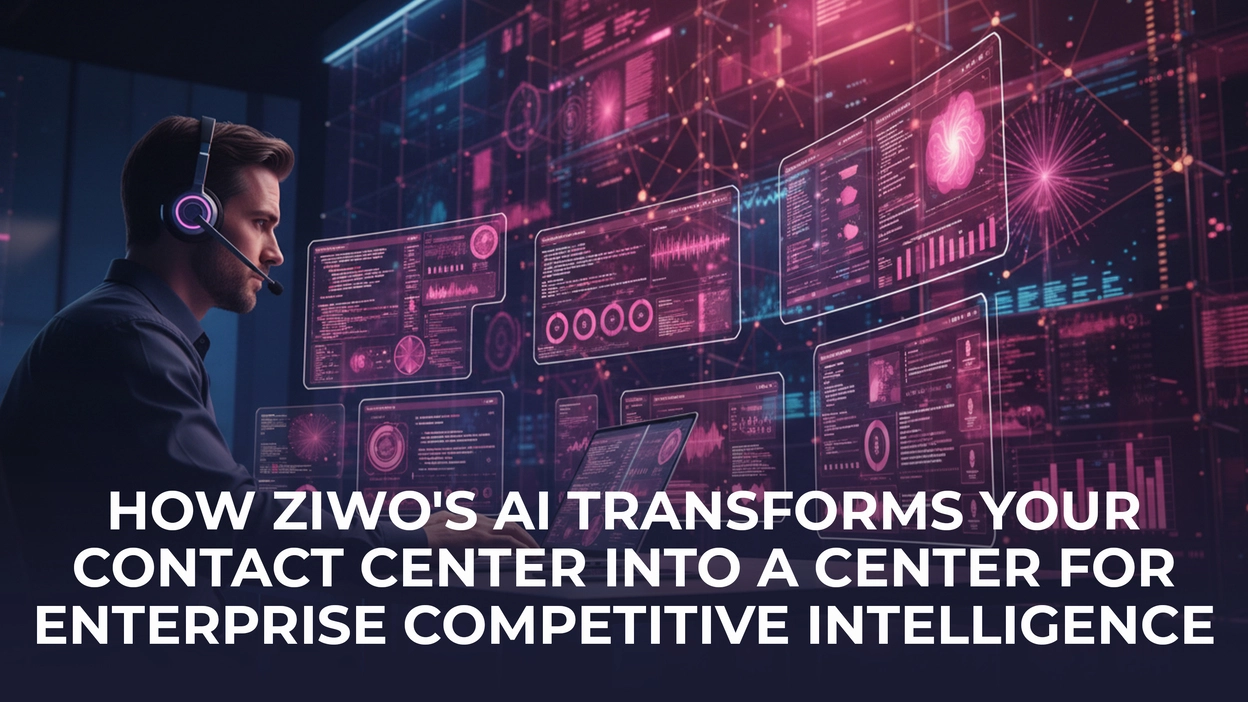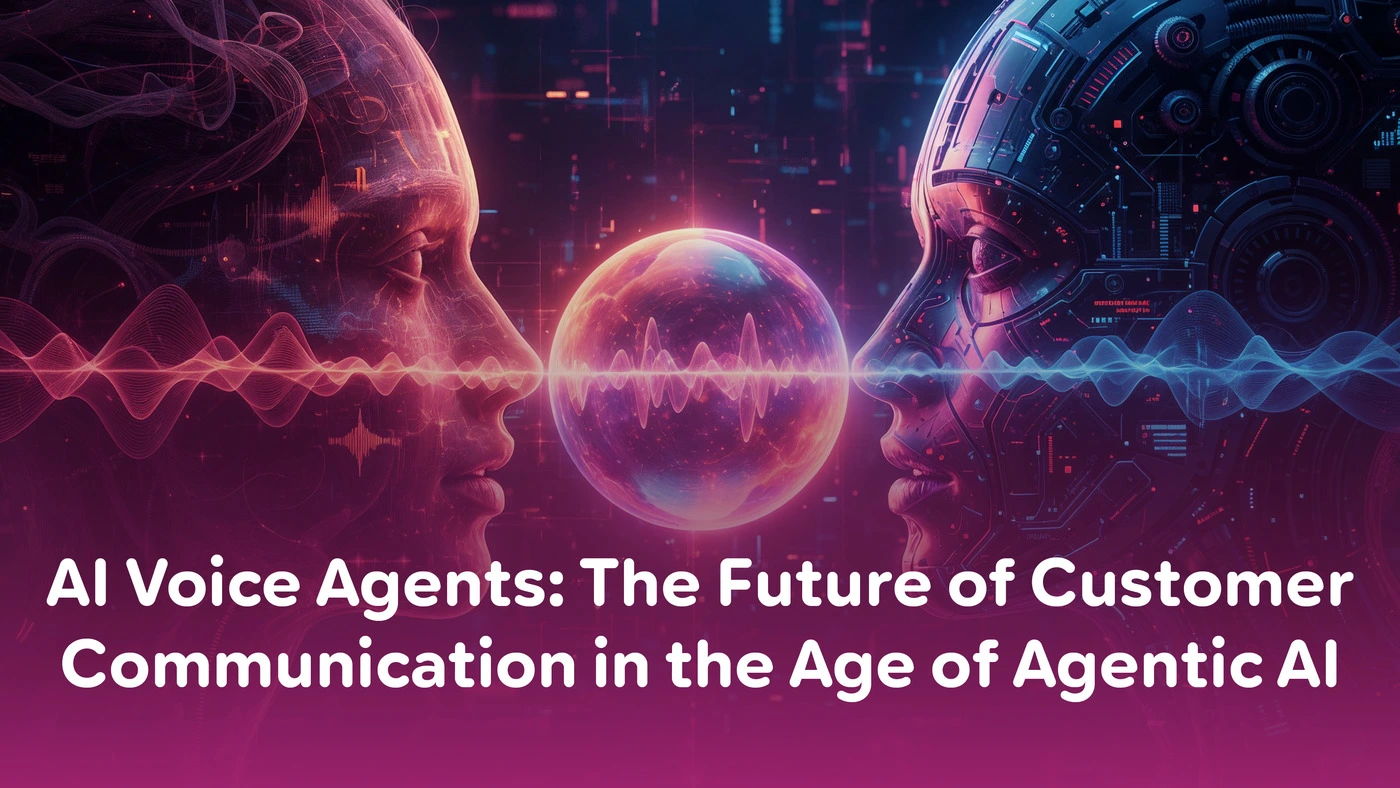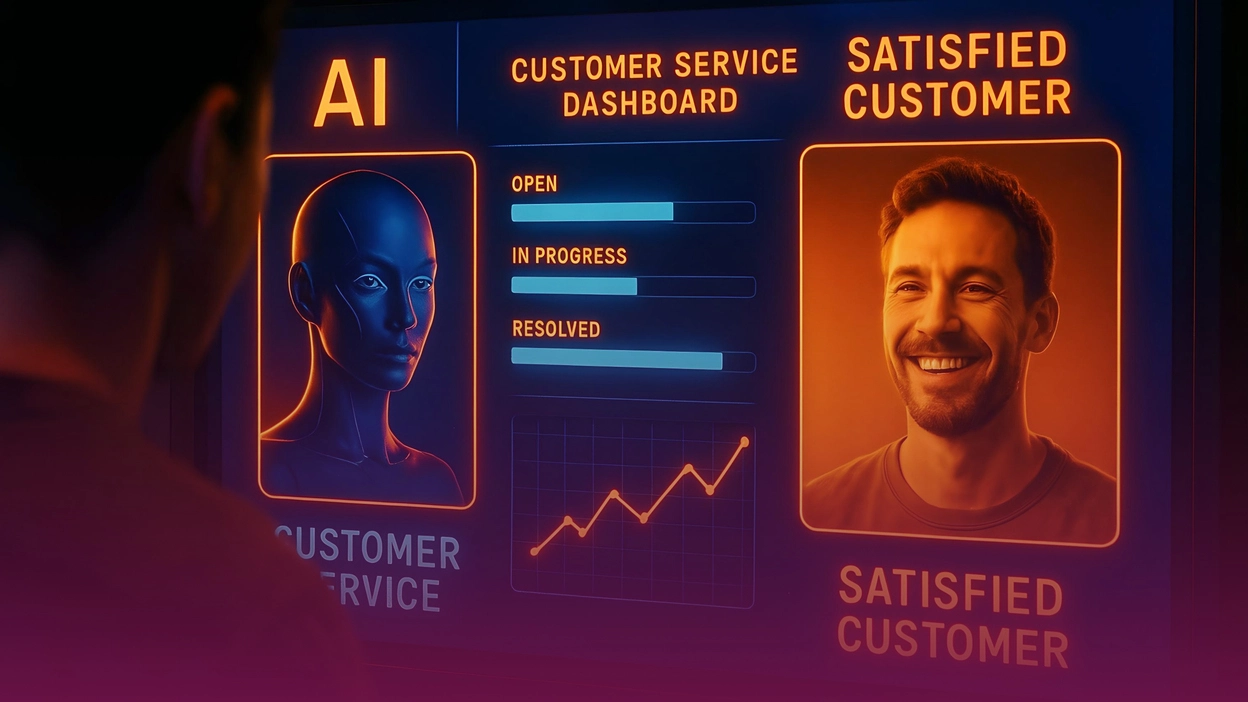
Autonomous Decision-Making
Agentic AI's ability to make autonomous decisions is a game-changer for customer interactions. These systems can navigate complex scenarios without human intervention, making decisions based on real-time data analysis.
In customer service, agentic AI can find the best way to solve a customer's problem. It does this by looking at past interactions and the current situation. This autonomy not only increases efficiency but also ensures that customers receive timely and accurate responses, enhancing their overall experience.
Learning from Interactions
One of the defining characteristics of agentic AI is its ability to learn continuously from interactions. Unlike static systems, which rely on pre-programmed responses, agentic AI evolves with each customer interaction.
This learning process involves analyzing outcomes to refine future responses, ensuring that AI systems become more adept over time. As these systems learn, they can better predict what customers need. This leads to a more personalized and effective experience for customers.
Real-Time Data Analysis
Real-time data analyzing is at the core of agentic AI's functionality. By processing large volumes of data instantaneously, these systems can extract valuable insights that drive decision-making, as shown in the flowchart below.
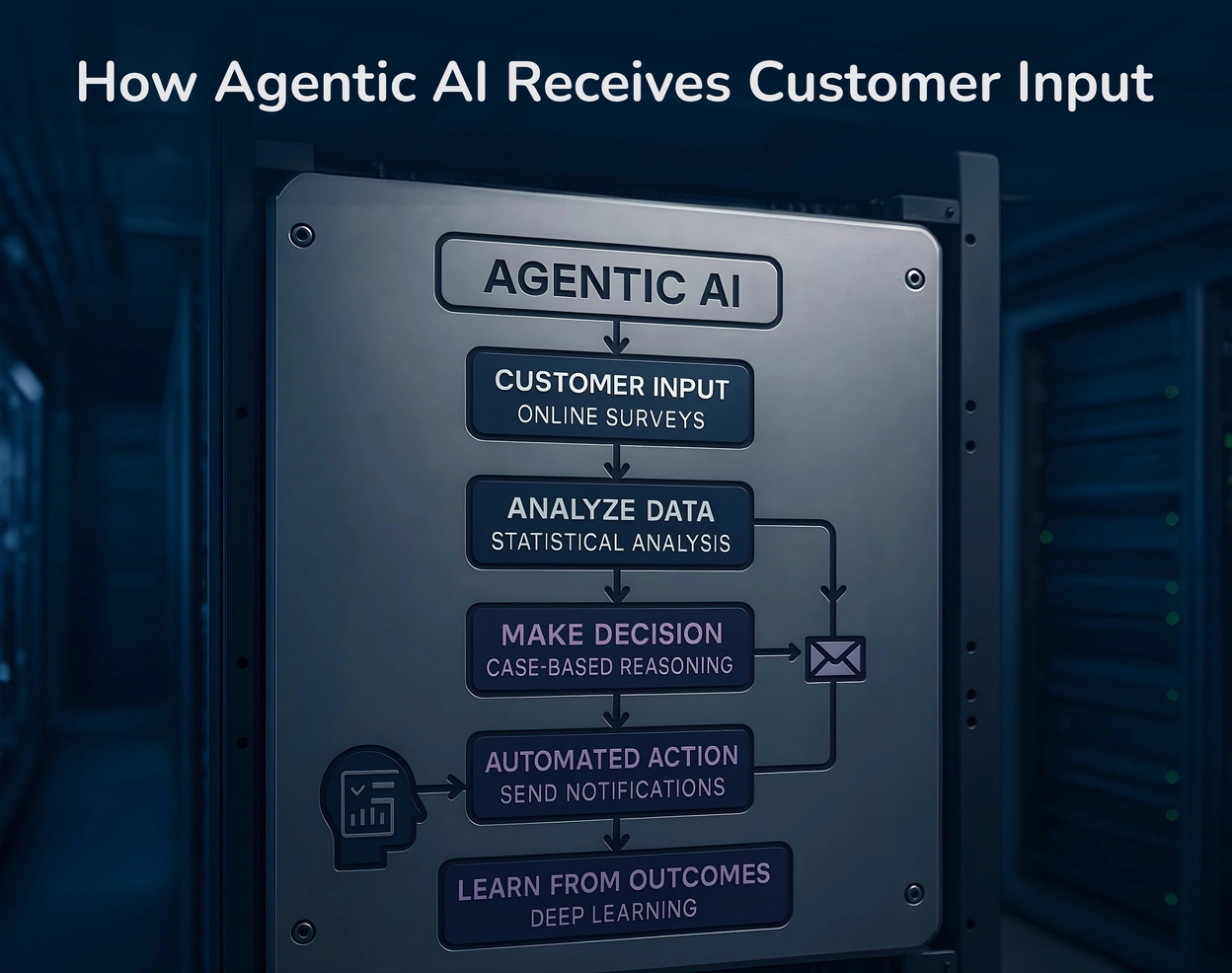
This capability allows businesses to be proactive in their customer interactions, addressing potential issues before they escalate. Moreover, real-time data analysis enables agentic AI to adapt to changing customer preferences and market conditions, ensuring that businesses remain agile and responsive.
Benefits of Implementing Agentic AI in Customer Experience
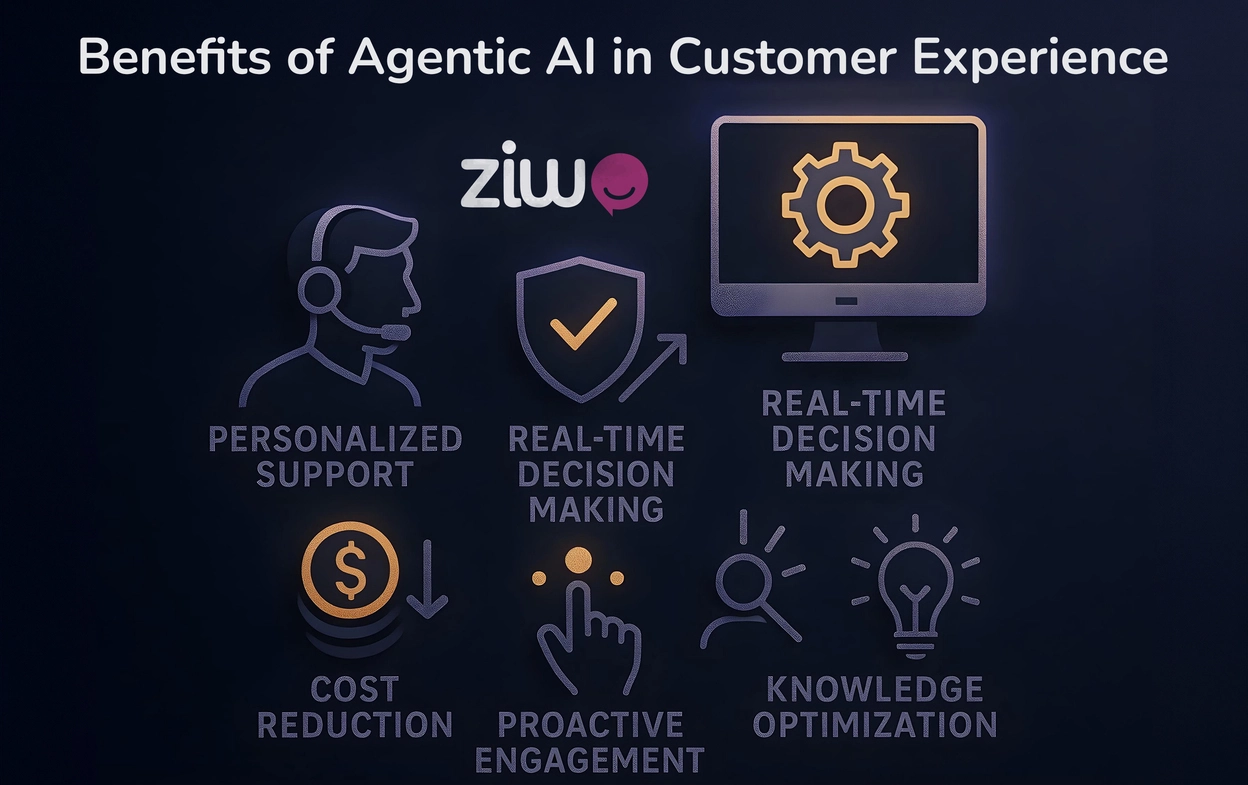
The implementation of agentic AI in customer experience offers several compelling advantages:
Improved Customer Relationships
By using AI to predict and meet customer needs, businesses can build stronger, long-term relationships with their clients. Agentic AI's ability to personalize interactions based on customer preferences and past behavior enhances customer satisfaction and loyalty.
Proactive Engagement
Proactive engagement is a big advantage of agentic AI. It helps businesses predict and meet customer needs before customers clearly state them. By analyzing past interactions and customer data, AI systems can predict future needs and preferences. This proactive approach improves customer satisfaction. It also builds trust and reliability. Customers feel valued and understood.
Personalized Interactions
Personalized interactions are at the heart of improved customer relationships. Agentic AI can tailor communications to reflect individual customer preferences and behaviors. AI systems can suggest products or services based on a customer's past purchases or browsing habits. This level of personalization makes customers feel appreciated, fostering loyalty and encouraging repeat business.
Increased Efficiency and Reduced Costs
AI-powered customer service solutions greatly lessen the workload for human agents. This allows them to focus on complex issues that need a human touch. This efficiency translates into reduced operational costs, as fewer resources are needed to manage customer interactions.
Streamlining Operations
Streamlining operations is a key benefit of integrating agentic AI into customer service. AI systems can handle routine inquiries and tasks, allowing human agents to focus on more complex and nuanced issues. This division of labor boosts productivity and ensures customers get high-quality service. Human agents are there to help with their needs when needed.
Cost Reduction Strategies
Cost reduction is an inevitable outcome of enhanced efficiency. By automating routine tasks, businesses can reduce their reliance on human labor, leading to significant savings.
Also, AI systems quickly resolve customer questions. This reduces the need for escalations and follow-ups. It helps lower costs linked to long customer interactions.
Resource Optimization
Resource optimization is another critical advantage of agentic AI. By allowing human workers to focus on tasks that need empathy and creativity, businesses can use their workforce better. This optimization improves service quality and boosts employee satisfaction. Agents free themselves from boring tasks and can do more meaningful work.
Enhanced Knowledge Base and Problem-Solving
Agentic AI can continuously update and refine a company's knowledge base by learning from each customer interaction. This dynamic learning capability ensures that AI systems remain current and effective in resolving issues, enhancing overall problem-solving capabilities.
Dynamic Knowledge Management
Dynamic knowledge management is crucial for effective problem-solving. Agentic AI systems can assimilate new information and adjust their responses accordingly. This adaptability ensures that AI-driven customer service remains accurate and efficient, even as products, services, and customer expectations evolve.
Challenges in Integrating Agentic AI
Agentic AI offers many benefits, but businesses face challenges when adding these systems to their customer service.
Ensuring Data Protection
Ensuring data protection is a critical challenge when implementing agentic AI. Businesses must adopt comprehensive cybersecurity measures to protect customer information from unauthorized access and breaches. This involves encryption, secure data storage, and regular security audits to identify and address potential vulnerabilities.
Compliance with Regulations
Compliance with regulations is essential for maintaining customer trust and avoiding legal repercussions. Businesses must follow data protection laws. This requires a thorough understanding of relevant regulations and the implementation of policies and practices that ensure compliance.
Building Customer Confidence
Building customer confidence in AI systems is vital for successful integration. Businesses must be transparent about how customer data is collected, stored, and used. By showing their commitment to privacy and security, companies can build trust. This helps ease worries about using AI in customer interactions.
Maintaining Human Touch
Despite the capabilities of agentic AI, maintaining a human touch in customer interactions remains crucial. Customers often seek empathy and understanding, which can be challenging for AI systems to replicate fully. Striking a balance between automation and human interaction is essential for a successful customer experience strategy.
Empathy in Customer Service
Empathy is a vital component of customer service that AI systems can struggle to replicate. Human agents can provide the emotional support and understanding that customers often seek. When human agents handle complex and sensitive interactions, businesses can make customers feel valued and respected. This helps build stronger relationships.
Overcoming Technical Challenges
Overcoming technical challenges is a common hurdle in AI integration. Businesses must address issues related to compatibility, scalability, and performance to ensure that AI systems function effectively within their existing frameworks. This may require investing in new technology, updating legacy systems, and collaborating with AI experts to resolve technical issues.
Managing Change and Adoption
Managing change and adoption is critical for the successful implementation of agentic AI. Businesses need to involve stakeholders. They should explain the benefits of AI. It is also important to provide training. This will help employees work with new systems. By fostering a culture of innovation and adaptability, companies can facilitate the adoption of AI and maximize its impact on customer experience.
Future Prospects of Agentic AI in Customer Experience

The future of agentic AI in customer experience looks bright. New AI technologies will improve how customers interact with businesses. As AI systems become more sophisticated, they will offer even greater personalization and predictive capabilities, transforming how businesses engage with their customers.
Hyper-Personalization Techniques
Hyper-personalization techniques will be at the forefront of future AI-driven customer experiences. By using advanced data analysis and machine learning, AI systems can provide personalized experiences. These experiences will match individual customer preferences and behaviors. This approach will not only enhance satisfaction but also foster deeper connections between businesses and their customers.
Customizing Customer Journeys
Customizing customer journeys will become increasingly feasible with the advancements in AI technology. Businesses will be able to tailor every touchpoint of the customer experience to align with individual preferences and expectations. By creating personalized and seamless journeys, companies can differentiate themselves in a competitive marketplace and drive long-term loyalty.
Accelerated Learning Processes
Accelerated learning processes will be a hallmark of future agentic AI systems. By using continuous data input and feedback loops, AI systems can learn and adapt faster than ever before. This capability will enable businesses to stay ahead of customer expectations and deliver exceptional service in real time.
Responding to Market Dynamics
Responding to market dynamics will be a critical capability of future AI systems. By continuously analyzing market trends and customer behavior, businesses can adjust their strategies and offerings to remain competitive. This agility will be essential for navigating an ever-changing business landscape and meeting evolving customer demands.
Integration with Emerging Technologies
The use of agentic AI with new technologies will change how we connect with customers. These technologies include the Internet of Things (IoT) and augmented reality (AR). These technologies will enable businesses to create immersive and interactive experiences that redefine customer journeys.
IoT-Enabled Customer Experiences
IoT-enabled customer experiences will be a significant trend in the future of agentic AI. By connecting AI systems with IoT devices, businesses can gather real-time data and insights that enhance customer interactions. This connectivity will enable seamless and personalized experiences that cater to individual needs and preferences.
Augmented Reality and AI
Augmented reality (AR) combined with AI will revolutionize the way businesses engage with customers. By overlaying digital information onto the physical world, businesses can create interactive and immersive experiences that captivate customers. This integration will offer new opportunities for product demonstrations, virtual try-ons, and personalized recommendations.
Conclusion
Agentic AI represents a transformative force in the realm of customer experience. By leveraging AI-driven solutions, businesses can enhance customer interactions, improve efficiency, and build lasting relationships with their clientele. However, successful implementation requires careful consideration of challenges such as data privacy, maintaining a human touch, and integration complexity. As AI technologies keep evolving, businesses that use agentic AI will be ready to meet customer needs. This will help them grow and succeed in a competitive market.

